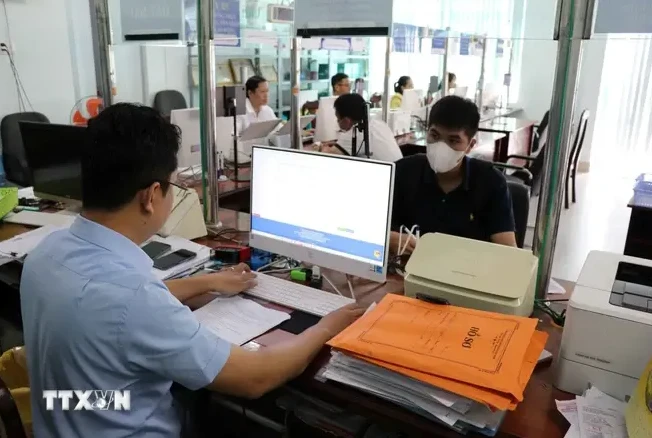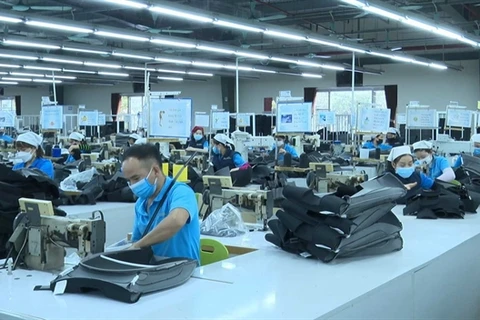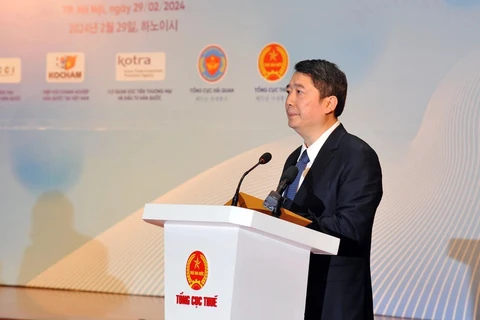
Hanoi (VNA) – To achieve a high-income status by 2045, Vietnam needs to accelerate productivity growth as the workforce's contribution to growth is expected to decline and later turn negative because of the country’s population ageing, said Andrea Coppola, Lead Country Economist and Programme Leader for Equitable Growth, Finance and Institutions in Vietnam, Cambodia and Laos.
Speaking at the launch of the report “Improving business regulations to support productivity growth in Vietnam” jointly conducted by the WB Group and the Government Office, he said that regulatory reform is critical to Vietnam’s journey towards higher productivity and economic prosperity.
A clear, predictable and effective regulatory framework is essential to foster a dynamic business environment, attract investment and promote efficient resource allocation.
Regulatory reform helps reduce costs and risks for businesses. When regulations are streamlined and simplified, businesses can operate more efficiently, saving time and resources spent on compliance, he explained.
The saved resources can be used to invest more, apply technology, improve management, leading to increased productivity in companies, said Coppola.
Zenaida Hernandez Uriz, WB’s senior private sector specialist, said that Vietnam’s remarkable economic success over the past 30 years has been based on export-oriented foreign direct investment (FDI) but getting a high-income status requires Vietnam to increase productivity.
Firm-level analysis points to misallocation of resources as a key constraint to productivity growth in Vietnam, she said.
According to the WB’s Governance Indicators, Vietnam’s regulatory quality has improved significantly over the past two decades. The proportion of firms spending more than 10% of their time understanding and completing administrative procedures has been steadily declining in recent years. However, firm-level analysis and international benchmarking suggest that there is still room for improvement in regulatory quality, and this improvement could boost productivity growth in Vietnam.
Nearly two-thirds of startups see business regulations as a challenge. Despite improvements, Vietnam’s regulatory quality score remains lower than some regional peers. Inconsistent licensing regulations and public service provision are barriers to market entry and innovation, affecting companies’ competitiveness and growth.
The report emphasised that an improved legal framework is critical to stimulating the private sector's investment and innovation, and boosting productivity and employment growth.
Reducing and simplifying business regulations is yielding results, but gaps in prioritization and implementation make it difficult to assess the impact.
Ngo Hai Phan, Director of the Administrative Procedures Control Agency at the Government Office, said the Vietnam issued Resolution No. 68/NQ-CP on reform of business regulations in Vietnam for the 2020-2025 period.
So far, Vietnam has removed over 3,000 business regulations. Ministries and agencies continue to propose simplifying nearly 1,200 regulations that are included in 32 laws and over 170 legal documents.
Phan said that under Resolution 68, Vietnam aimed to cut at least 20% of business regulations and now, the number of removed regulations exceeded the target./.






















